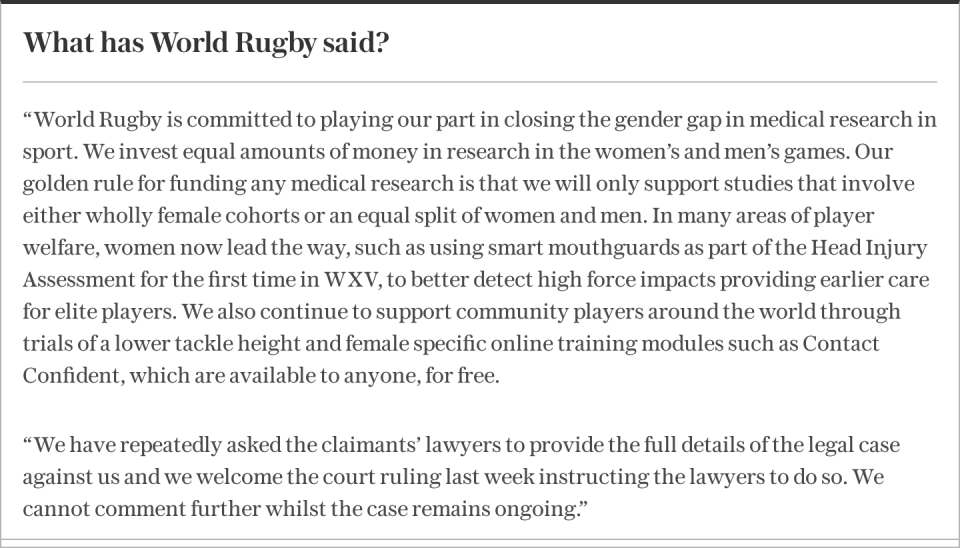Teresa O’Reilly was sitting in her living room when she was struck by the harrowing realization that her brain had been shattered.
She had decided to look Head On: Rugby, dementia and me, the heartbreaking documentary about 2003 World Cup winner Steve Thompson, who suffers from early dementia and has difficulty remembering large parts of his career. O’Reilly, a former prop who collected 49 England caps, could identify with almost all the symptoms Thompson described.
“It was an ‘Oh my God’ moment. My mouth went dry,” O’Reilly says. “I thought, ‘B—– damn, part of that is me.’ It wasn’t panic, it was fear. Same sensation when I played internationally, that feeling in my throat before I played.
Over the next 12 months, O’Reilly, who had an eight-year playing career for Saracens – a powerhouse of the women’s amateur game in the 1990s, underwent a series of neurological tests.
In March this year, aged 58, she was diagnosed with early-onset dementia and joined 295 former players in bringing a class action against the Rugby Football Union, the Welsh Rugby Union and World Rugby. The three bodies are accused of negligence in failing to protect players from brain injuries during their careers.
‘No one did cognitive tests when I played’
O’Reilly represented her country at two World Cups and was the biggest England prop, male or female, when she retired in 2002, a year before Thompson played in England’s historic World Cup win that has since been erased from memory.
O’Reilly’s memory of her own sports career is also vague. She even readily admits that she won’t remember most of our conversation in the country pub in Oxfordshire where our conversation takes place. It’s partly why Jacky, her partner, is there. O’Reilly has trouble finding words. Jacky, who knows her inside and out, is here to help her finish her sentences.
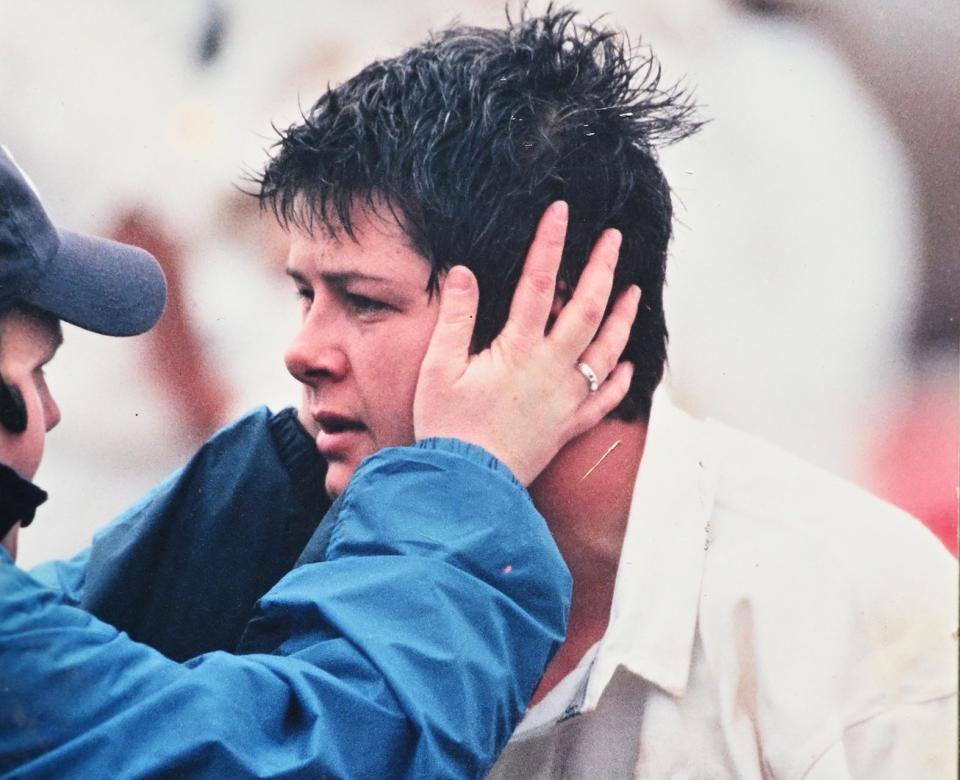

O’Reilly brought a box of memorabilia from her playing days to jog her memory. The photos, well-thumbed and fragile, fall onto the table. There’s one showing her at the height of her career, with a close-cropped haircut, during a match for England. She kneels on the field and her head is cradled by a physiotherapist. She can’t remember the year or where the game was played.
“That was after I took a really bad blow to the head against France,” said O’Reilly, the first female player involved in the trial to speak publicly. “The physio probably asked me if I could squeeze his hand and see what I could see. No one has done cognitive testing or concussion testing. If you were stupid, you could lie about it.”
O’Reilly made her England debut in 1998, at a time when women’s football was in poor proportion to the men’s game and offered only a fraction of the profile it now enjoys. She was as dedicated as the next male player who aspired to become a professional.
On an average day, she cycled between 25 and 30 kilometers as part of her commute. Her lunch breaks were taken up with speed drills and she diligently did the weight sessions necessary to build her 73kg frame for the front row, where, as she now acknowledges, she had squashed her brain for years.
The well-being of the players was non-existent. At England level it was not unusual for a volunteer team doctor to be in charge of a squad of thirty players. Often no doctor showed up at all, with players often encouraged to run away with concussions. “If you didn’t get ‘out of hand,’ you wouldn’t be in the team,” O’Reilly says.
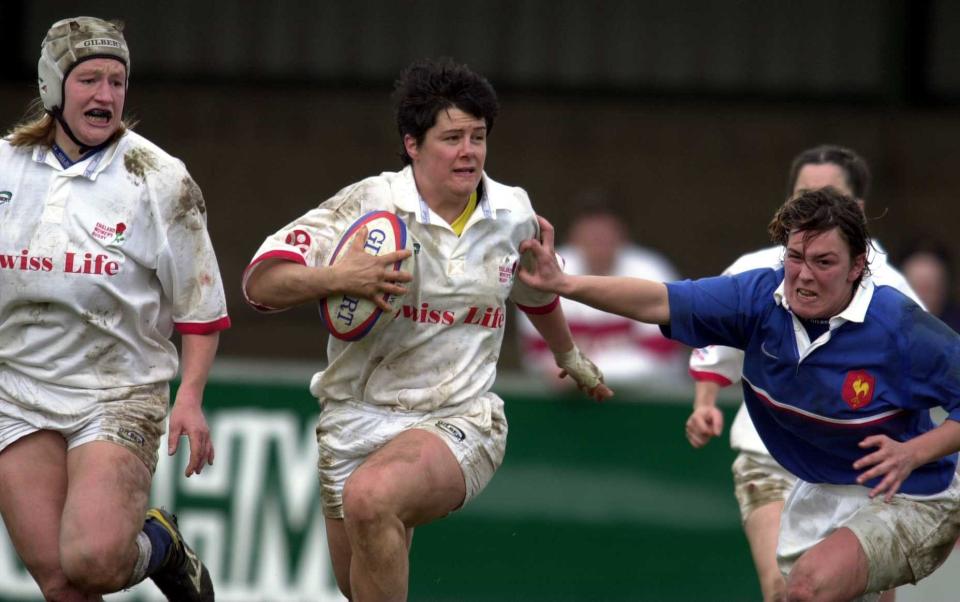

Ahead of the 1998 World Cup in the Netherlands, England, who had won the tournament four years earlier and wanted to defend their crown, brought in a specialist coach named Phil Larder, the former rugby league player who was also Clive Woodward’s defense coach.
He was known among O’Reilly and her colleagues as ‘Phil-hit-em-harder-Larder’, for the brutality of his training sessions, but the scrum magic exercise took an even heavier toll.
“I can still remember coming out of some of those scrum sessions and it was like being run over,” O’Reilly says. “We were trudging so far that we were going to pass out.
“They dug the scrum machine into the ground so it couldn’t move. You actually want it to give a little, but as a player in the front row you feel that the blood vessels in your neck are constricting due to the amount of effort.”
Such training methods, although ruthless, helped England reach the semi-finals of the 1998 World Cup, a tournament in which O’Reilly suffered a significant head injury that would leave her debilitated for months. She doesn’t remember coming off the field or flying home.
“It took about ten minutes before I realized I couldn’t go any further and had to get off,” she says. “I was sick for about 24 hours, like I had a hangover. I had a few weeks off, kind of got over it and started training again [but] I still suffered from dizziness. I was lifting weights and it felt like someone was hitting me in the head with a hammer.” Her health continued to deteriorate and she eventually lost her job as a project manager at a construction company.
O’Reilly doesn’t know how many concussions and sub-concussions she has suffered during her career. “I imagine it’s in the thousands,” she says. “If you had given me a million pounds I would never have been playing in the front row knowing what I know now.”
She had a successful career – including being named England’s Player of the Year in 1999, being inducted into Rugby World magazine’s Hall of Fame in 2002 and winning a silver and bronze World Cup medal – but now questions She wonders if it was all worth it.
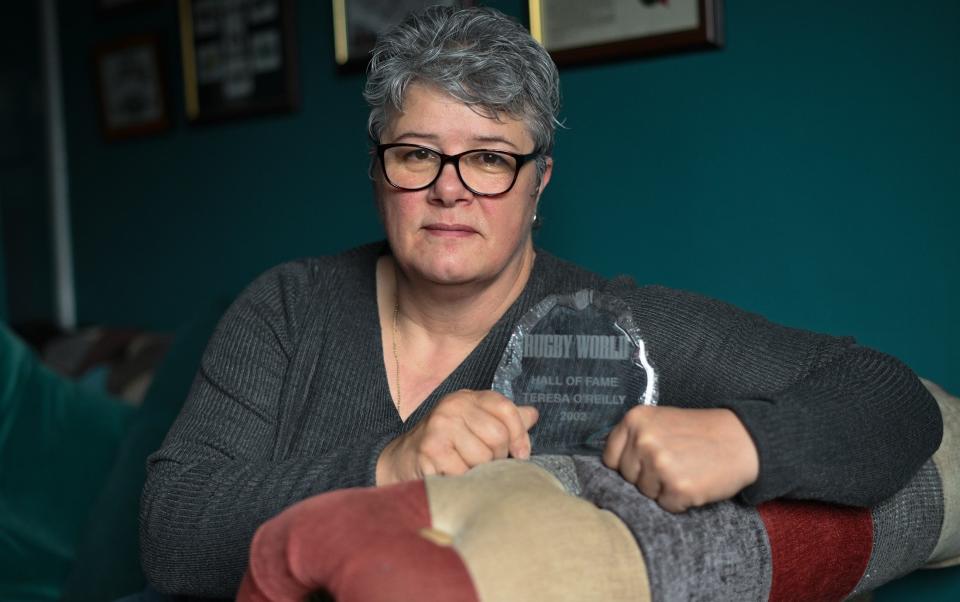

‘I’m 58 and it was like having the memory of an 80-year-old’
O’Reilly’s brain shows signs consistent with chronic traumatic encephalopathy (CTE) – the degenerative brain disease that cannot be diagnosed until after death.
Eight years ago, when she first started experiencing symptoms, including chronic headaches, brain fog and fatigue, doctors blamed them on menopause. No further questions were ever asked about her career in top sport.
It was only when she made the “shocking parallel” with Thompson that she contacted Richard Boardman of law firm Rylands Garth, who is leading the class action lawsuit. O’Reilly agreed to undergo neurological testing.
The three-hour ordeal, during which she struggled to perform simple memory tasks, still haunts her. “It was probably the only time I broke down,” she says. “I was 58 and it was like having the memory of an 80-year-old. I don’t think I’ll ever get over that shock. I came out broke like a kid. That realization that my brain wasn’t working properly was devastating.”
O’Reilly’s diagnosis has provided some relief, but has not stopped her deteriorating health. Her headaches, which occur almost daily, have become more severe, as has the high-pitched screaming in her head. At home there are times when she puts the kettle in the refrigerator or her phone in the sink. PIN codes have become a nightmare to remember.
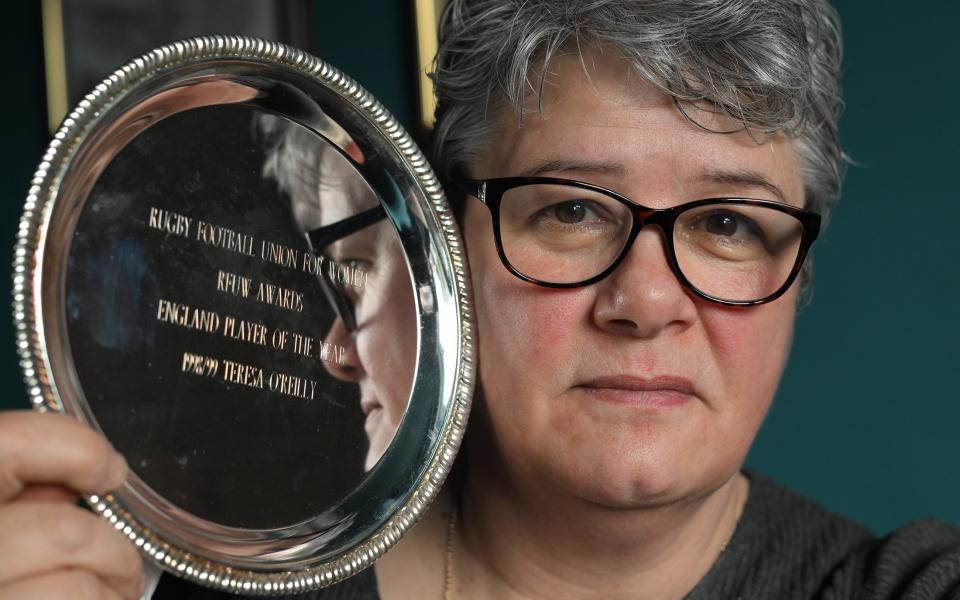

She no longer uses the local parking garage because she couldn’t find her way out the last time she drove into it. There have been times when she’s driven the wrong way to work, despite doing the same commute for years. She has also stopped driving at night due to her high sensitivity to light.
A few weeks ago she and Jacky went to see Dawn French live. It was the first time she had done anything social in more than two years. “I almost left because I couldn’t handle the audience chatter and the house lights as we waited for the performance to start,” she recalls. “It overloaded my brain.”
Recently, O’Reilly has started having trouble swallowing. She and Jacky are now eating dinner in silence. Although she can manage her headaches, her mood has also become unstable. A week before we met, O’Reilly, an avid cyclist all her life, had attempted to replace a valve in her bicycle tire. “I didn’t know how to do it,” she says. “I almost destroyed my bike because of it.”
O’Reilly can still work as an operations manager for the NHS, but in recent years the duties have become more demanding and she has moved into more junior roles. She was forced to think not only about early retirement, but also about her own mortality.
“Many people will go through this alone, without the understanding or support. Jacky is my absolute rock. When I talk about going to Switzerland (where assisted suicide is legal), Jacky let me make that decision and respected it, no matter how difficult it was,” says O’Reilly.
‘I don’t want to be in a nursing home, where someone else wipes my… and gives me things I don’t like. I want some respect and dignity and to be able to choose when it’s right for me. I work in the NHS. I know how worthless the healthcare is.”
Former internationals Non Evans (Wales) and Meghan Mutrie (Canada) are also part of the concussion case against rugby authorities. With research showing that women are more than twice as likely to suffer a concussion in contact sports than men – and experience more pronounced symptoms – O’Reilly thinks there could be more former female players in her situation.
“Some of my colleagues will not believe and acknowledge these problems,” she says. There is sadness in her voice. “I honestly think so. Unless it happens to you, it’s not real.”
Earlier this year, a ‘Red Roses Wall’ was erected in Twickenham, honoring almost 250 women who have represented England. O’Reilly can’t bring himself to watch it. After watching clips of the men’s World Cup this year, she has become desensitized to the sport that has irreparably damaged her brain. “I love the sport. I just don’t feel like it anymore,” she says.
Does she want the rugby authorities to apologise? “No. I want commitment and assurance that they are testing players properly and that there is ongoing support as people retire, even if that means a brain scan every five years, at all levels of the game,” she says.
“It needs to be recognized that there is a long-term effect of not understanding the context of what you are doing. That’s what needs to come out of this. Do you understand that by playing this sport you could potentially develop brain impairment? Did you plan that? Because I didn’t plan it.”
